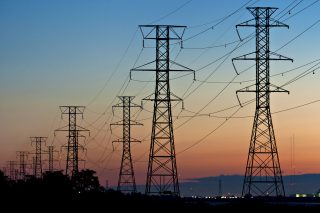Nigeria’s Minister of Finance, Zainab Ahmed, yesterday disclosed that the World Bank has approved the country’s request for a $3 billion loan.
During a press briefing at the end of the 2019 Annual Meetings of the International Monetary Fund (IMF) and World Bank in Washington DC, Ahmed said that the federal government had put in a request for the financing of its power sector at the range of $1.5 billion to $4 billion.
The loan, which is to aid the expansion of the transmission and distribution networks in the power sector, will be disbursed in four tranches of $750 million each. “Our plan is that the team will be able to go to the World Bank for the approval of the first tranche in April 2020,” Ahmed said.
The minister revealed that the $3 billion will be deployed in improving the distribution network and part of it will be used to close the gap between current tariff and the cost of running the business by the Distribution Companies (Discos). “This will lead to the exit of subsidy in the power sector thereby restoring the business side,” she added.
Over time, the shortage of power supply in Africa’s biggest economy has been a challenging issue, resulting in an increase in business expenses and impeding the growth of almost all the sectors in the country.
The loan acquired by the government to solve the issue of power supply is commendable. Nevertheless, there are concerns about implementation and accountability.
One of the problems with the power sector in Nigeria is not necessarily about a lack of funds but about accountability and transparency in executing plans for improving power generation and distribution. It is not enough to get loans if what it is being used for cannot be adequately accounted for at the end of the day.
As of 2015, Nigeria had spent over N2.740 trillion on the power sector over a period of 16 years. However, this outlay has not improved the power situation which remains epileptic. Thus, ensuring transparency in how secured loans are deployed, through detailed accounts of expenses, should be high on the agenda of the government.
Improving transmission
Alhaji Usman Gur, the managing director, Transmission Company of Nigeria (TCN), has also revealed that the federal government, in collaboration with international donor agencies, has reserved over $1.61 billion to ensure that there is constant power supply in the country.
Gur said that the project, which is to be carried out under the Transmission Rehabilitation Expansion Programme, is seeking to rehabilitate and expand transmission capacity to 20,000 Megawatts by 2022 across the country.
Nigerians whose lands, houses and farms would be affected by the right-of-way to create power lines for the execution of the project will be compensated to the by the federal government, to the tune of N32 billion.
Written by Treasure Nnabugwu.








